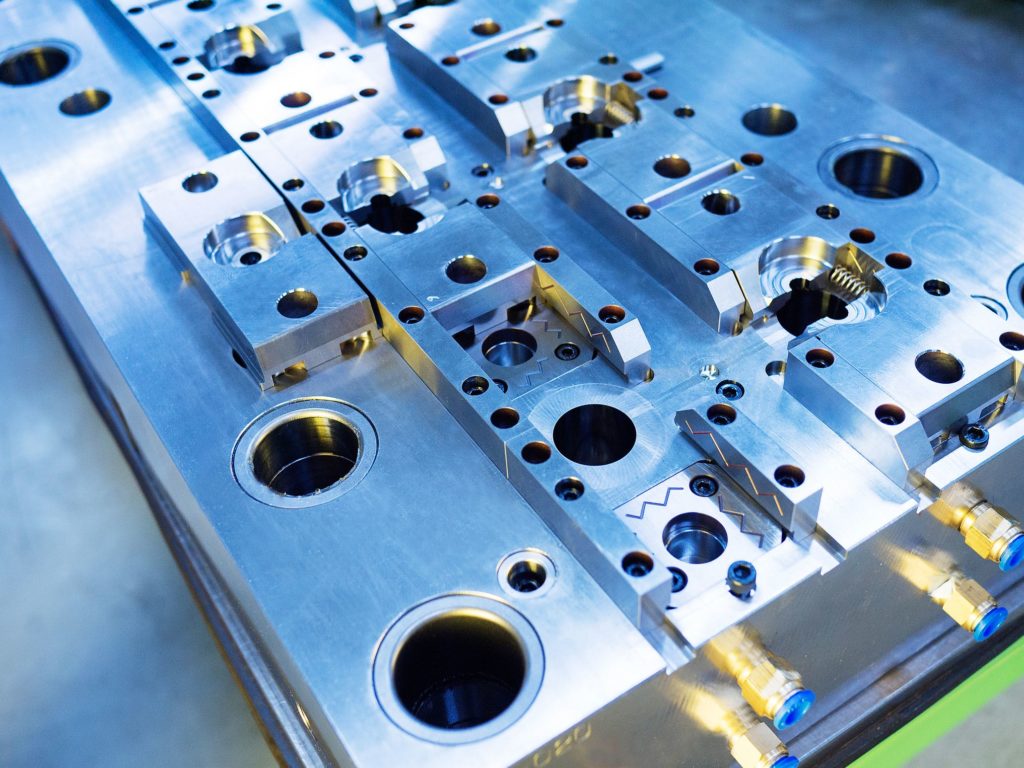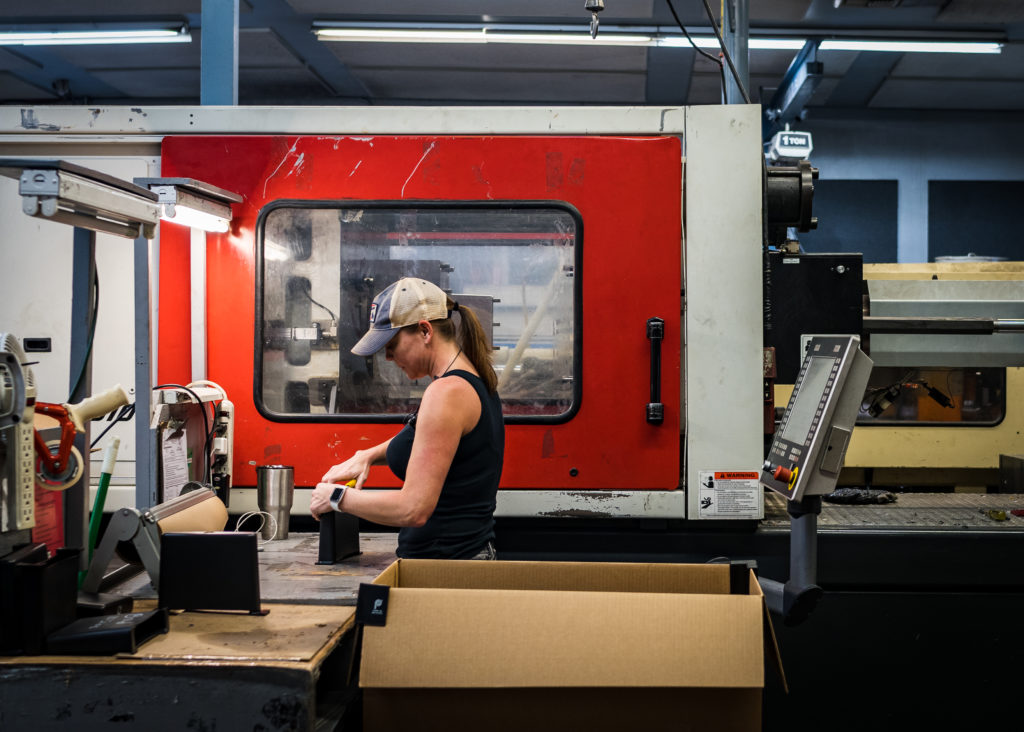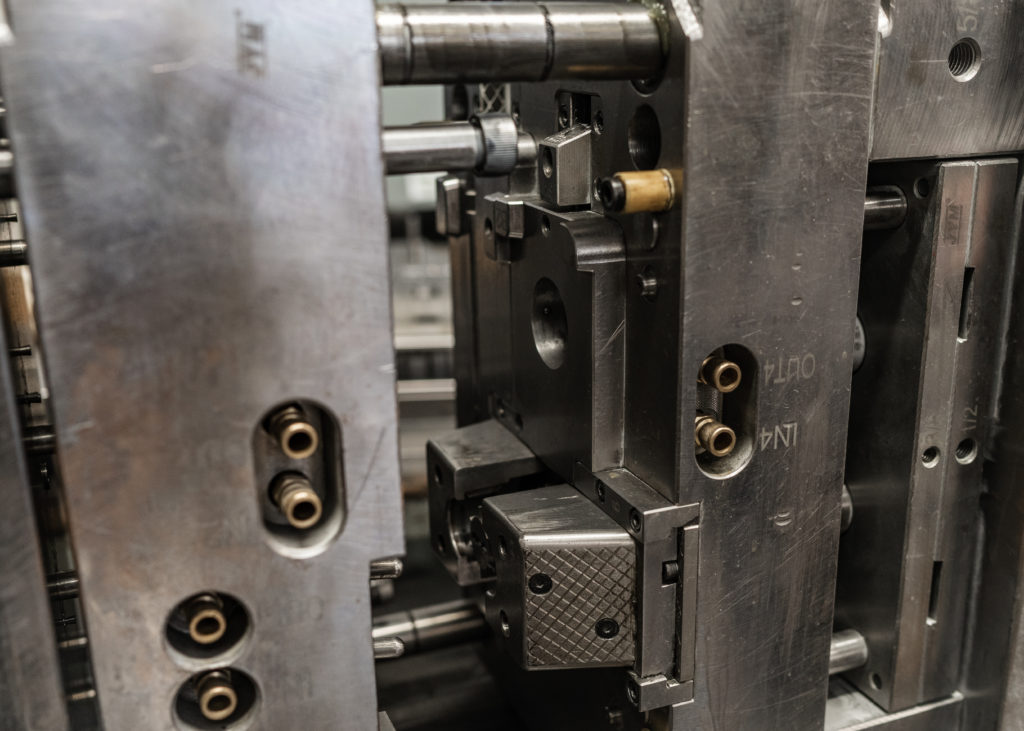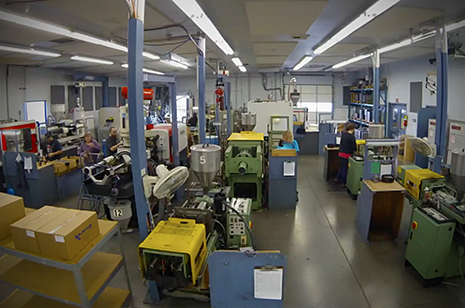- BY nwmcadmin
- POSTED IN Plastic Injection Molding, Plastic Injection Molds
- WITH 4 COMMENTS
- PERMALINK
- STANDARD POST TYPE

The plastic injection molding process
The basics of the plastic injection molding process: melted plastic injects into a metal mold. The plastic material cools inside the mold and hardens into the finished product. The product releases when the two halves of the mold separate and the plastic ejects.
How does injection molding work?
Put simply, injection molding is a process used in manufacturing to create parts and products as quickly and efficiently as possible, without sacrificing quality. The molding machine injects liquid plastic or metal into a mold in order to create a product. A manufacturer can create multiple pieces simultaneously, and in quick succession, using this technique.
You can read more about the basics of plastic Injection molding here.
What is injection molding
used for?
Injection molding is most often used when a producer needs to manufacture a large number of plastic products, usually over 100 pieces. The process offers a number of advantages, most namely a low cost per unit. Injection molding creates an incredible number of everyday products. In fact, there’s a good chance that you’re near one right now. From computer mice to car parts, plastic injection molding is an integral part of our lives.
Read more about the costs of injection molding here.
Injection molding process steps
- Melt plastic
- Inject the molten plastic into a mold
- Let the molten plastic cool to a solid state
- Remove the hardened product from the mold
Alt text- metal injection mold plates
Injection molding process control
When it comes to the quality of molded products, there are a number of specific processes that must be accounted for and controlled.
Key to the injection process as a whole, temperature has a huge impact on a mold’s performance. Each plastic material has a specific melting point, so different projects require careful adjustment.
Another factor to monitor and control is pressure, applying to both the injection and the mold cavity. Too much pressure will cause material to be extruded from the mold. Too little can cause the product to be incomplete.
Plastic injection molding process problems

When working with a molder, it’s important to understand the problems that can arise during the process. Some issues are inevitable, but the information you gain here will help you know what to look out for. With this in mind, you’ll better communicate quality issues with your molder and optimize your relationship.
- Short shot – The mold doesn’t fill completely and the part is incomplete
- Splay – visible gray or silver streaks on the finished product caused by excess moisture in the material
- Weld line – a line or seam that forms where liquid material comes together
- Burning – Burn marks on the product caused by air trapped in the mold
- Flash – Plastic that escapes out of the cavity, creates a thin layer of plastic sticking off of the part that must be trimmed
- Sink – A dimple or depression in the part, caused by low pressure in the mold
At Rex Plastics, we use the latest in injection molding technology and technique to ensure that your project is completed as efficiently as possible.
Injection molding at Rex Plastics
The injection molding process can seem daunting at first, but understanding the steps involved can help to clear the matter up. Our expert staff has years of experience helping clients get exactly what they need. If you have questions about manufacturing a product using injection molding, contact us for more information.




you are providing us wonderful knowledge and very much useful and relevant do provide more information do more update on this topic
Muhammad azam nawaz mobile number 03138030618 manufacturing plastic mawad auto parts used mould
I filmed a mould injection machine last year – large installation from RNA Automation and Arburg. Some solid insights here. As a Gloucestershire-based industrial video producer and web designer, I’m always looking for ways to enhance my craft and bring even more value to my clients. Thanks for sharing! Take a look at my work at https://lukesutton.co.uk, https://pixelprometheus.co.uk, and https://industreel.co.uk, my main ventures in this field. – Luke